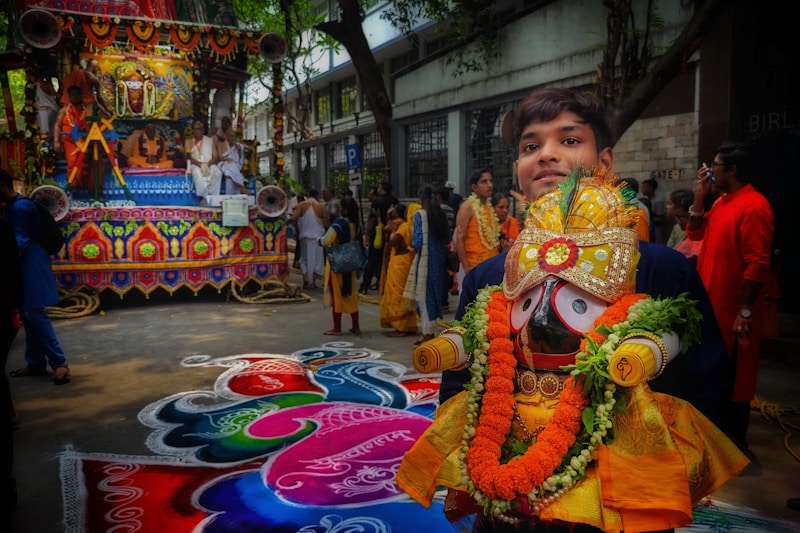Timeless Elements of Cultural Weddings: A Deep Dive into Traditions and Customs
Introduction to Cultural Weddings
Cultural weddings are more than just a celebration of love; they are a rich tapestry of traditions, beliefs, and practices that vary from region to region. The timeless elements of cultural weddings serve as a beautiful representation of history, identity, and communal bonds. This article explores the various components that make these weddings unique, cherished, and memorable experiences.
Understanding Cultural Weddings
A cultural wedding is defined by the specific customs and rituals that are characteristic of a particular ethnic or cultural group. These elements are often passed down through generations, making them invaluable to families and communities alike. From elaborate ceremonies to traditional attire, the significance of these components cannot be overstated.
Significance of Timeless Elements
The timeless elements of cultural weddings play crucial roles in the events, often symbolizing different aspects of the couple's journey and the cultural heritage they represent. These elements can include rituals, clothing, music, and food. They help in establishing a deeper connection not only between the couple but also between families and communities.
Key Elements of Cultural Weddings
| Element | Description |
| Rituals | Custom ceremonies that symbolize union |
| Attire | Traditional clothing representative of heritage |
| Food | Dishes that reflect cultural significance and family traditions |
| Music | Traditional songs and dances that enhance the festive atmosphere |
| Decor | Symbolic decorations that convey meaning and beauty |
Rituals: The Heart of Cultural Weddings
Rituals are integral to cultural weddings, serving as the backbone of the ceremony. Different cultures have their unique customs, whether it be the exchange of rings, the lighting of candles, or the tying of a sacred knot. These rituals often carry deep symbolism, representing the couple’s promise to cherish and respect one another. Some notable rituals include:
- The Hindu Saptapadi: This involves the couple taking seven steps together, signifying their commitment to support each other in all aspects of life.
- The Jewish Breaking of the Glass: This is a symbolic act where a glass is shattered, illustrating the fragility of relationships and the joy associated with marriage.
- The African Jumping the Broom: This signifies the couple’s leap into their new life together, merging their families and cultures.
Attire: A Reflection of Culture
Wedding attire is often one of the most visually striking aspects of cultural weddings. Each outfit tells a story and showcases the rich aesthetic traditions of a culture. For instance:
- Indian Weddings: Brides typically wear a vibrant red or gold lehenga, while grooms often don a sherwani, symbolizing royalty.
- Chinese Weddings: The color red is predominant, with brides adorning themselves in a traditional qipao or cheongsam, signifying prosperity and happiness.
- Scottish Weddings: Grooms wear kilts, which reflect their heritage, paired with a sporran that holds great traditional significance.
Food: Nourishing the Soul
Food is an essential element of any wedding celebration, and cultural weddings are no exception. Each dish served provides guests with a taste of the couple's cultural background. Some popular examples include:
- Italian Weddings: The inclusion of a multi-course meal that often features pasta and seafood.
- Mexican Weddings: Traditional dishes like tamales and mole can be found, along with an array of delicious salsas.
- Middle Eastern Weddings: Dishes like biryani and hummus are common, celebrated for their rich flavors and communal dining experience.
Music: The Heartbeat of the Celebration
No wedding is complete without music; it sets the tone and enhances the overall atmosphere. Traditional music varies widely between cultures, with each genre often linked to specific meanings and rituals. For example:
- Indian Weddings: Live musicians typically play dhol and shehnai, bringing vibrancy to the celebration.
- Greek Weddings: Traditional dances like the "Kalamatianos" form part of the festivities, encouraging all guests to join in.
- Filipino Weddings: The "Harana," or serenade, is an essential aspect, often performed by friends or relatives of the couple.
Decor: A Symbol of Tradition and Meaning
Wedding decor is another vital element that enhances the aesthetic of the ceremony. This can include floral arrangements, lighting, and themed decorations that resonate with cultural meanings. For example:
- Balinese Weddings: Overwhelming floral displays symbolize beauty and fertility.
- Jewish Weddings: Traditionally adorned with intricate chuppahs, representing the home the couple will build together.
- Native American Weddings: Often feature sacred items such as feathers and herbs, symbolizing spiritual connections.

Conclusion
The timeless elements of cultural weddings play a crucial role in celebrating the rich history and traditions of various communities. With rituals that resonate deeply, attire that reflects cultural pride, food that nourishes both body and spirit, music that enlivens the atmosphere, and decor that creates an enchanting ambiance, each component is essential to the celebration of love. As couples explore and incorporate these elements into their weddings, they not only honor their heritage but also contribute to the beautiful mosaic of cultural diversity.
Final Thoughts
When planning a cultural wedding, it's essential to consider the elements that resonate most with you and your partner. Embrace traditions that highlight your heritage, while also allowing space for personalization. Remember to involve family members who may have insights and stories to share, as their wisdom can enrich the overall experience. Ultimately, your wedding should reflect your values, love, and the beautiful traditions that have shaped your journey together.